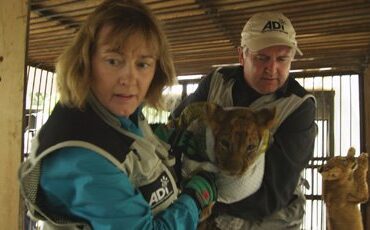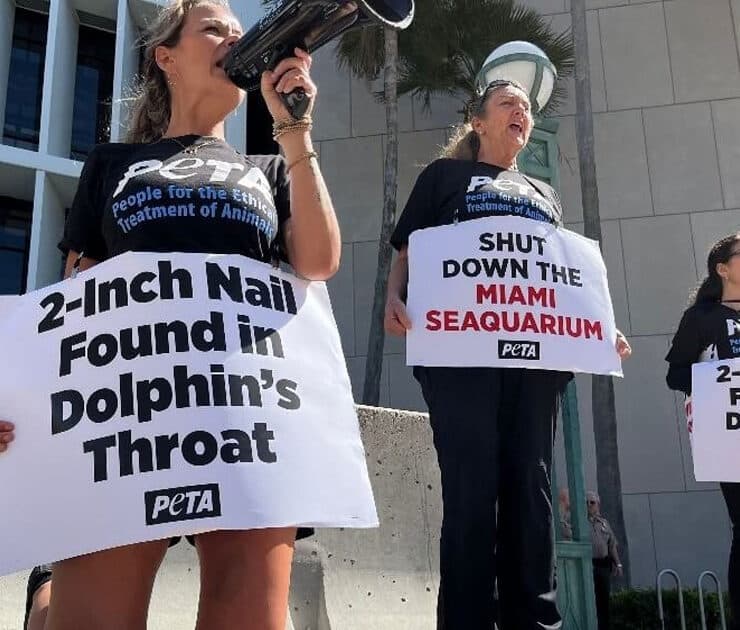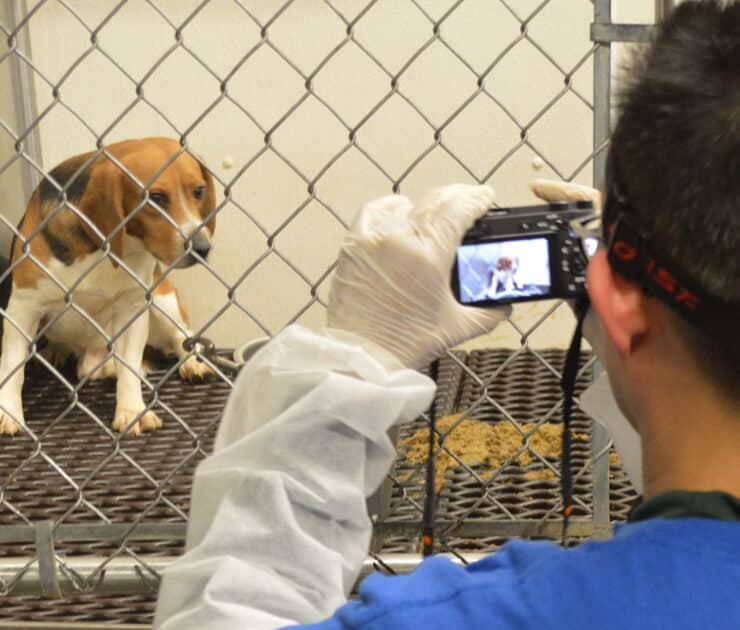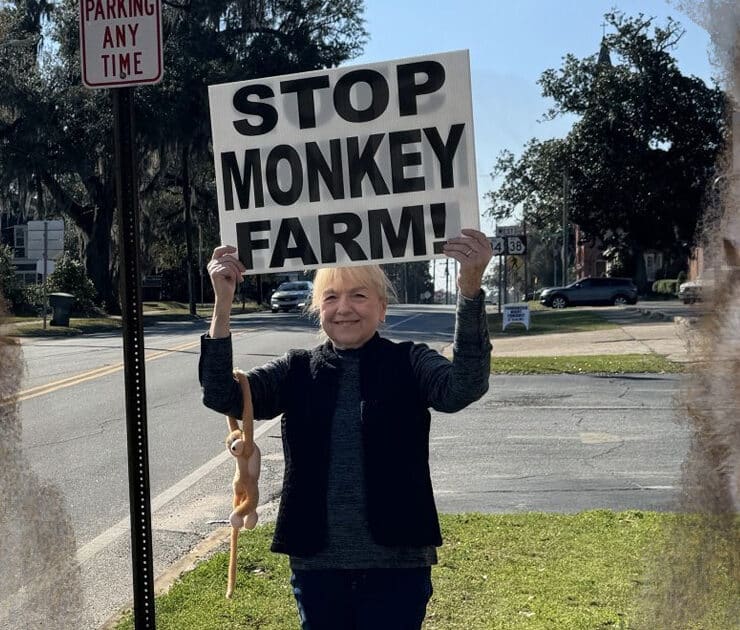Plant Based Treaty Urges Cities & Institutions: Go Vegan
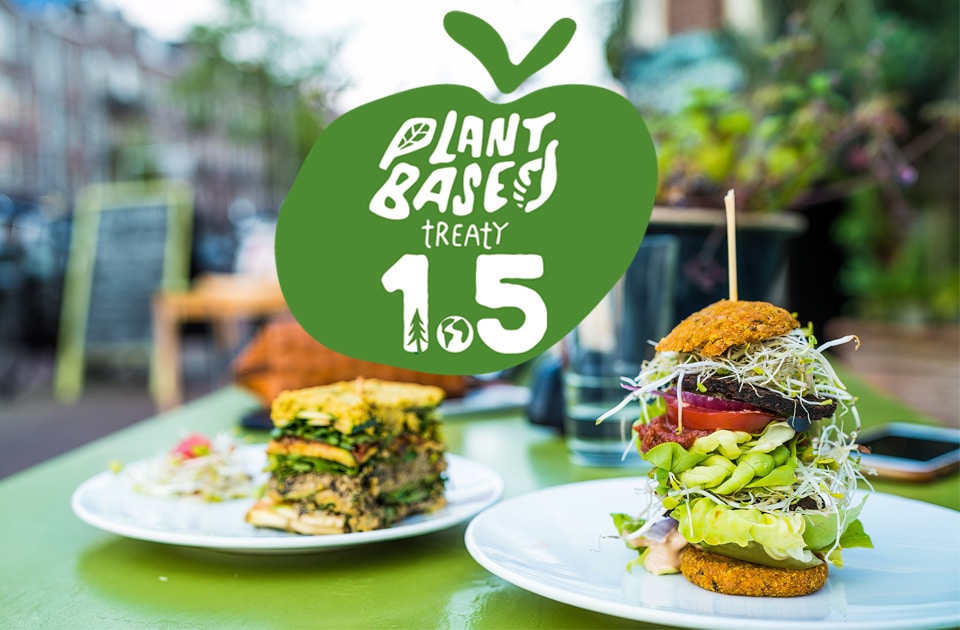
The Plant Based Treaty urges cities and institutions to take real action to address meat’s role in the climate crisis.

Los Angeles, January 16, 2023 — To spur institutions into urgent action, the Canadian-based vegan campaigning group Plant Based Treaty is starting 2023 with a new focus. It is urging institutions all over the world – cities, businesses, nonprofits, universities, hospitals, nursing homes, prisons – to adopt meaningful plant-based measures to tackle the escalating climate crisis.
To help them do that, it has unveiled a new project called PBT 1.5 which lists specific measures they can take with their food choices. By purchasing and promoting products from the animal agriculture industry, one of the leading sources of greenhouse gas emissions, PBT says these institutions are making the problem worse. The solution proposed is clear: move towards plant-based alternatives for all their food-related choices.
What Is PBT 1.5?
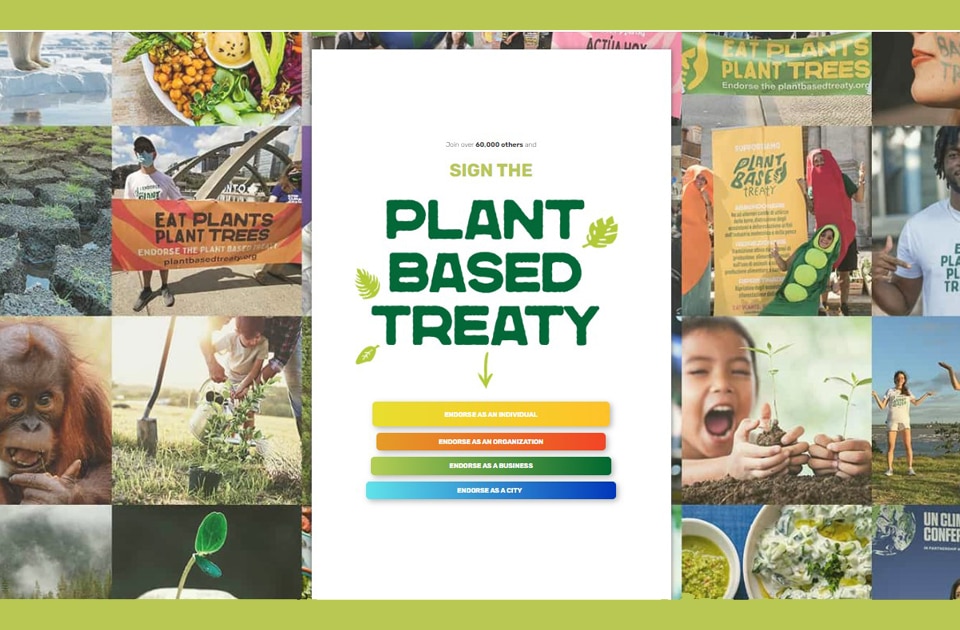
PBT 1.5 is a call to action asking institutions to endorse the Plant Based Treaty and to put that commitment into action. In essence, it’s asking society’s institutions to move beyond words into deeds to address greenhouse gas emissions from animal-based foods. PBT 1.5 urges these institutions to provide more plant-based foods to help meet the commitments under the 1.5 C Paris Agreement. Endorsing the Plant Based Treaty will help create bottom-up pressure to halt the expansion of animal agriculture.
The Plant Based Treaty is a campaign created by the vegan organization Animal Save Movement, founded by the Canadian activist Anita Krajnc in 2011. The Treaty aims to halt the widespread destruction of critical ecosystems caused by animal agriculture. It also aims to promote a shift to healthier, sustainable plant-based diets. Additionally, it seeks to actively reverse the damage done to nature, including the wild animals being driven into extinction.
3 Core Principles
The Plant Based Treaty has three core principles: Relinquish (no land use change, ecosystem degradation or deforestation for animal agriculture), Redirect (an active transition away from animal-based food systems to plant-based systems), and Restore (actively restoring key ecosystems, particularly restoring forests and re-wilding landscapes). So far, the Plant Based Treaty has been endorsed by more than 69,000 individuals, more than 1,000 organizations, 1,000 businesses, and at least 19 cities.
In 2022, the city of Los Angeles, the second largest city in the United States, endorsed the treaty. Haywards Heath is the first municipality in the UK that has endorsed it. In India, the cities of Bhuj, Bhujpur, Jabalpur, Nagpur, Amravati, Thane, Vadodara, Ahmedabad, Bhavnagar, Mundra, Jamnagar, Rajkot, Gopalpur, Gandhinagar, and Sonipat have also endorsed it, as has the Turkish city of Didim.
Which Meaningful Plant-Based Measures Can Cities Take?
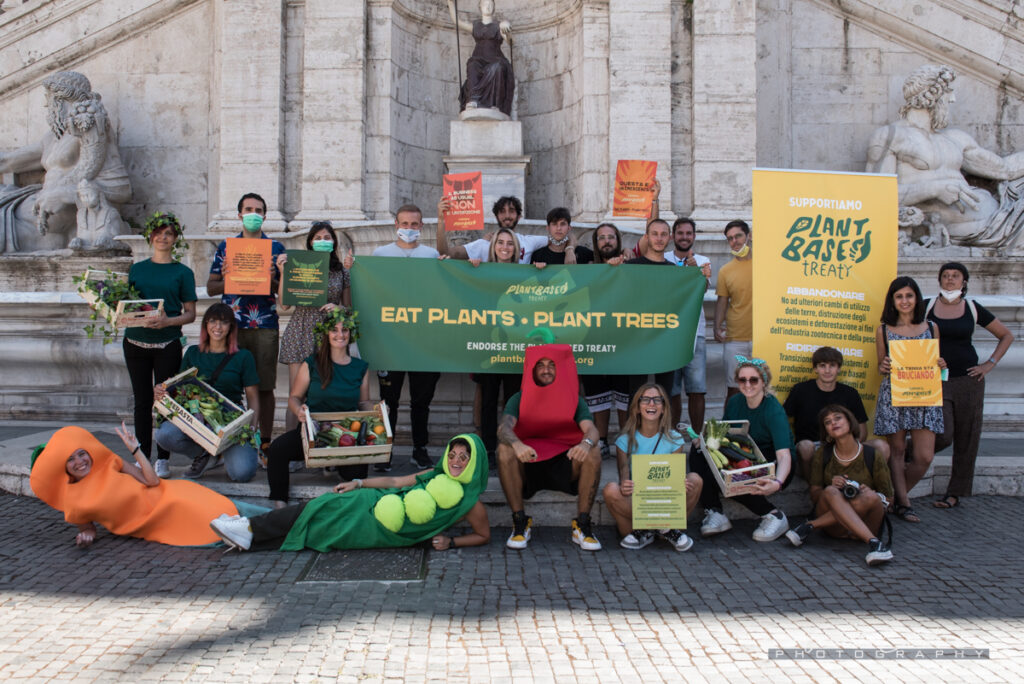
If a city has not signed the Plant Based Treaty, yet, it can still make positive changes. Here are some concrete actions the PBT 1.5 team (in partnership with the Better Food Foundation and VegTO) suggests that any municipality can take:
- City Council Events (serve only plant-based foods at all council events).
- Procurement (start phasing out animal products from all city food purchases).
- Greener by Default Standards (have a food standards policy that makes plant-based foods the default option on all catering).
- Subsidization (provide fruit & vegetable vouchers to low-income and marginalized communities and lower fruit and vegetable prices).
- Investment (increase investment in local plant-based markets to create green jobs).
- Divestment (align cities’ pension funds with their Environmental, Social and Governance goals).
- Food Waste (choose plant-based food suppliers that waste less food).
- Taxation (tax meat, dairy and eggs for environmental and health reasons).
- Community Education (promote plant-based foods with advertising).
- Advertising (ban public advertising of animal products).
- Daycares (move daycares plant-based to not just lower emissions, but also to improve the physical and emotional growth of children).
- Cities partnering with schools (work with stakeholders to move school meals towards plant-based menus).
- Colleges & Universities (make plant-based foods the menu in its entirety).
- Community Education & Access (create or scale up existing local, plant-based workshops).
- Food Banks (increase the amount of fresh produce at food banks).
- Hospitals (serve plant-based foods as the default option in hospitals).
- Fruit and Vegetable Produce Prescription Programs (work with nonprofits or governments to create or scale up produce prescription programs).
- Cities working alongside businesses including restaurants (incentivize restaurants and chains to increase plant-based menu items).
Examples of Meaningful Plant-Based Measures Already Taken

Here are some examples of municipalities already applying some of these measures:
The councils of Faversham, Hythe, Lewisham, Reading, and Oxfordshire County in the UK have passed motions to serve only vegan food at council events.
Haywards Heath Town Council in the UK took part in Veganuary 2022 and encouraged residents to join them in their newsletter and website.
In Sao Paulo, Brazil, over one million vegan meals are served weekly on Meat-Free Mondays at over 3,500 schools in over 100 cities.
Oakland Unified School District in California reduced its carbon footprint from food purchases by 14% while saving over 42 million gallons of water and $42,000 by reshaping its menu with fewer animal products.
The Canadian University Initiative has been working with seven Canadian university chefs, since 2020, to transition to at least 60% plant-based meals.
The mayor of Kelowna, Canada, organizes a Vegan Awareness Week each year in May.
The Toronto Vegetarian Food Bank has provided over 350,000 eco-friendly and healthy meals to people struggling with food insecurity for over seven years.
Hayek Hospital in Lebanon, the first fully vegan hospital in the world, has eliminated all animal products from its menus to prevent patients from consuming the very foods that may have contributed to their health problems in the first place.
The Big Apple
Last, but certainly not least, New York City serves exclusively plant-based foods at its cultural events (heritage events, etc.), and all public hospitals in the city offer plant-based options for each of the three million meals they serve to their patients. It has also introduced Vegan Fridays to all public schools.
What's Your Reaction?
Jordi Casmitjana is a vegan zoologist and author.



